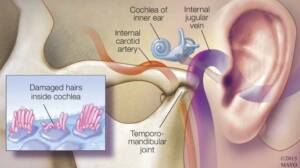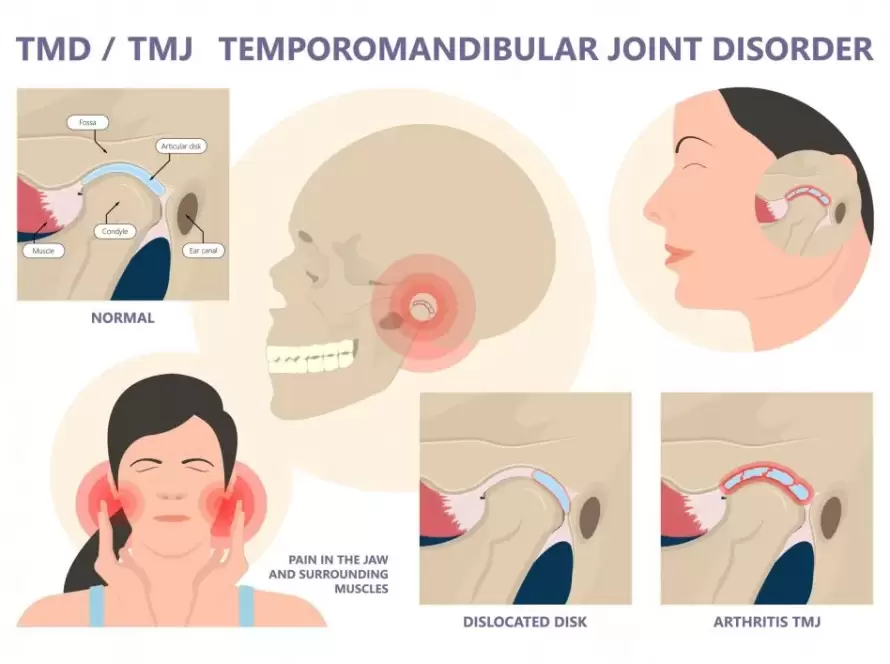
Tinnitus is a condition where you suffer from ringing, buzzing, or other noises in your ears when there’s no external sound causing it. It can be bothersome and can adversely affect quality of life. Most of the times, tinnitus is due to a disorder or pathology in the ear structures but in a small subset of patients, there’s a connection between tinnitus and a condition called TMJ disorder.
So, what is TMJ disorder? Well, TMJ stands for temporomandibular joint.
It’s the joint that connects your jaw to your skull. TMJ disorders encompasses disorders of this joint and the muscles around it. This can cause pain in your jaw, difficulty chewing, and even problems opening and closing your mouth properly and at times ear symptoms.
Now, you might be wondering, how does TMJ disorder relate to tinnitus? The connection lies in the proximity of the temporomandibular joint to the ear. When you have TMJ disorder, it can affect the muscles and nerves around your jaw and ear. This can lead to changes in how you perceive sound, which may result in tinnitus.
But how does TMJ disorder cause tinnitus? Well, it’s not entirely clear. Some experts believe that the muscles and nerves affected by TMJ disorder can send signals to your brain that make it think there’s sound when there isn’t. Others suggest that the changes in pressure around the ear due to TMJ disorder can trigger tinnitus.
It’s important to note that not everyone with TMJ disorder will experience tinnitus, and not everyone with tinnitus will have TMJ disorder. However, if you do have both conditions, treating TMJ disorder may help alleviate tinnitus symptoms for some people.
So, what can you do if you suspect you have TMJ disorder and tinnitus? The first step is to see an Otolaryngologist (ENT physician); if ear assessment is unremarkable or normal, consult your dentist or an Orofacial pain practitioner. They can evaluate your symptoms and recommend the appropriate treatment.
Treatment for TMJ disorder and tinnitus may include:
1. Jaw exercises and stretches to relieve muscle tension.
2. Using a mouthguard or splint to reduce teeth grinding and jaw clenching.
3. Pain medications or muscle relaxants to alleviate discomfort.
4. Stress management techniques, as stress can exacerbate both TMJ disorder and tinnitus.
5. Hearing aids or sound therapy to help manage tinnitus symptoms.
In conclusion, while the connection between TMJ disorder and tinnitus isn’t fully understood, there is evidence to suggest that these conditions can be related. If you’re experiencing symptoms of either TMJ disorder or tinnitus, don’t hesitate to seek help from a healthcare professional. With the right treatment, you can manage your symptoms and improve your quality of life.


